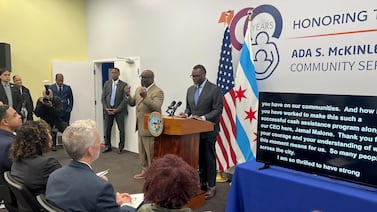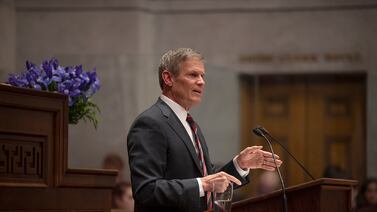Newark Public Schools gave itself high marks in this year’s self-evaluation required by the New Jersey Department of Education to measure performance, state support, and oversight, if any, over local districts.
The district submitted its performance review on Nov. 15 as part of the New Jersey Quality Single Accountability Continuum, or NJQSAC, the monitoring and district self-evaluation system used to assess school districts in five areas: instruction and program, fiscal, governance, operations, and personnel. In 2017, Newark’s evaluation was vital in the state’s decision to initiate local control to the district after it made “significant progress” and satisfied regulatory requirements of the monitoring system, according to the district’s 2017 transition plan for local control.
During the October board of education meeting, board members said they ranked themselves high in each area of the self-evaluation. Superintendent Roger León added that the board’s responsibility is to say “we’ve met 100 points,” meaning the highest level of performance the district can reach based on all five components of the monitoring system.
If the state finds that a school district scores lower than 80 points on its overall performance, it may require the district to create an improvement plan, undergo an in-depth evaluation, or in extreme cases, the department of education may intervene.
“Our job is not to say, oh, it shouldn’t really be less than 100 points,” said León during the Oct. 27 board meeting. “That’s the state’s job. That’s the job of people who don’t want the district to demonstrate greatness.”
This year, NPS is tasked with proving student achievement to the state despite the effects of the pandemic and learning loss suffered during remote learning. Preliminary state test scores show Newark students scored low in math, reading, and science, a national trend among students. The district must also prove its curriculums are in compliance with state standards, taxpayer dollars are being used appropriately, and school policies and procedures are in place, among other things.
NPS was under state control from 1995 to 2017 after a state judge decried “failure on a very large scale” within its schools and “nepotism, cronyism, and the like” among its school board. During that time, the school board operated in an advisory capacity while the state appointed a superintendent for the district.
New Jersey restored the board’s authority in February 2018, but kept it under state monitoring until July 2020 following a two-year transition period. The changes were made under former Gov. Chris Christie’s administration and following a 2007 law that calls for state-operated districts to regain control of areas they “consistently received strong scores on the NJQSAC” accountability scale.
School districts must undergo the state’s performance review at least every three years. Each of the five areas used to evaluate districts are weighted and used to determine if a district is providing a “thorough and efficient education,” according to the NJQSAC user manual. As part of the evaluation process, district’s must submit their own performance review, which is evaluated in three phases, according to the manual.
During last month’s Newark board of education meeting, interim board president Asia Norton and other board members stressed the importance of the evaluation in order to keep Newark Public Schools under local control. Each committee leader on the board also reported the documents submitted to supplement their review in each of the five areas being assessed.
Once the district’s self-evaluation is submitted, the Essex County executive superintendent will verify the information and documentation submitted for Newark’s performance review before it goes to the state commissioner of education for final review and a state performance score.
If the county finds that Newark satisfies 80 to 100% of the “weighted” performance scores in each of the five areas reviewed, it will recommend the district for a “high-performing” designation to the state. If not, the county will detail areas of improvement for the district.
“This work is important as we wish to continue to remain under local control,” Norton said. “Thus for the last several months, committee and district staff have been working diligently so all necessary materials are compiled and provided to NJDOE so the district is able to receive the highest possible points.”
León said the self-evaluation process started in August, when the district assembled a committee to begin gathering information for submission. A draft of Newark’s performance review was completed on Oct. 7 and posted online for the public to review and submit questions.
The state self-evaluation system was established in 2005 to ensure accountability in school districts requiring state intervention.
Jessie Gomez is a reporter for Chalkbeat Newark, covering public education in the city. Contact Jessie at jgomez@chalkbeat.org.








